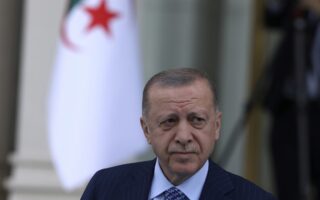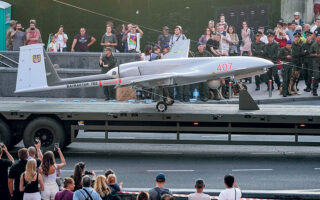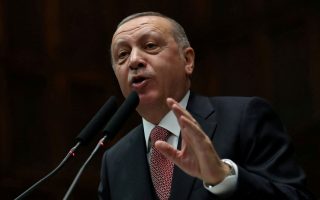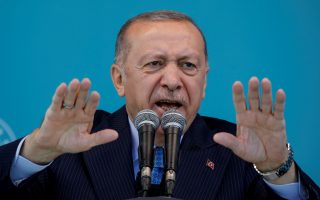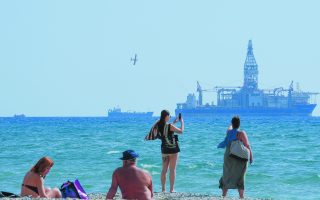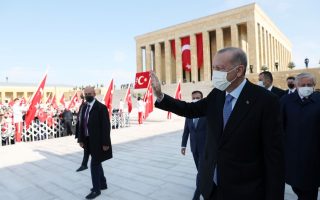No complacency toward Turkey
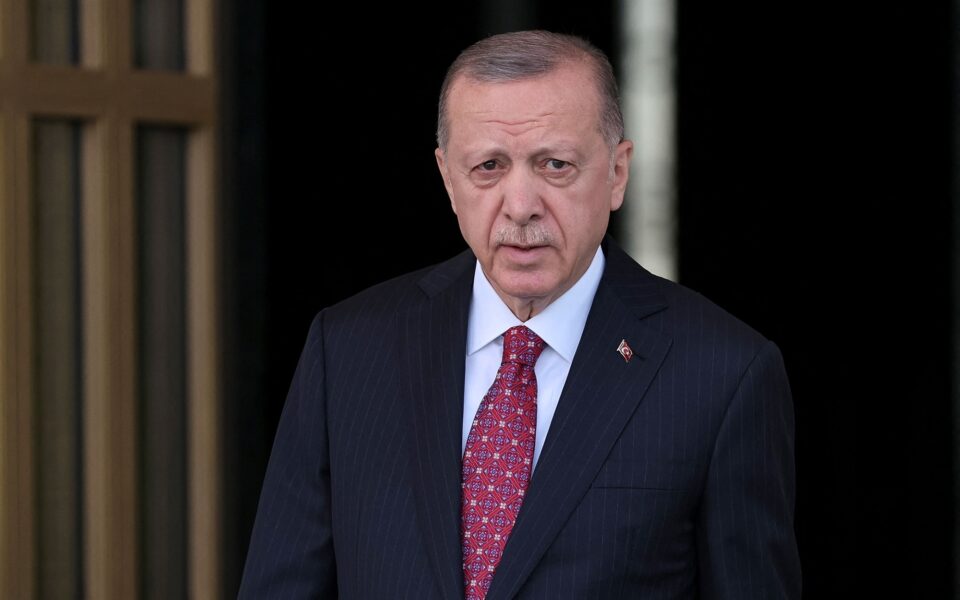
Over the past few weeks, the Turkish leadership has been putting forward a series of unconscionable, historically flawed and extremely dangerous theories, which are aimed at undermining Greece’s position in the Aegean and the Eastern Mediterranean. The Greek government’s public reactions and statements in response to these blatantly aggressive gestures have been what was expected, but they have also been overly simplistic at times and, therefore, somewhat misleading in terms of what we are really looking at.
The situation is quite complicated and efforts to analyze it should be cautious about inviting complacency. They basically need to avoid the argument that Recep Tayyip’s Erdogan’s motives are driven purely by domestic concerns. The upcoming elections are obviously on the Turkish president’s mind, but his motives are strategic.
Turkey’s role has been markedly elevated in the wake of Russia’s invasion of Ukraine. It is regarded as pivotal to Europe’s independence from Russian natural gas and features in every discussion on alternative energy routes. Important Western players are also treating Erdogan as essential to the management of Moscow, with whom Ankara is maintaining a policy of equal distances. And while all this has been going on, Erdogan defied expectations that the Ukraine war would put a freeze on Greek-Turkish tensions and made three parallel moves: reviving the policy of ratcheting up the tension with Greece; pressing the demand for military equipment from the West (such as F-16 fighter jets); and blocking Finland and Sweden’s accession to NATO.
The events of the past three months and these three specific moves by Ankara come with signs that should be causing alarm here in Greece.
The first sign is that all of Greece’s allies and partners have made statements acknowledging its positions, but apart from such generalizations, no one has actually recommended that measures be taken against Turkey if it continues to challenge Greece in the Aegean.
The second sign is the NATO secretary-general’s support for Turkey. His reactions are a signal that the international community should be mindful of Ankara’s reservations.
The West’s complete tolerance of Ankara’s opportunistic stance to the war – supporting Kyiv while maintaining excellent relations with Moscow – is the third sign, while the fourth is the essential lack of a response to Turkey’s plans for a new invasion of northern Syria. The United States has been lackluster about it, while the Russian reaction has been more theoretical than actual.
Important Western players are treating Erdogan as essential to the management of Moscow, with whom Ankara is maintaining a policy of equal distances
The fifth sign that should be causing alarm in Athens is that everyone is trying to keep Turkey at the table. The Italians want to work with it over Libya. Turkey was the main actor at the notorious five-way talks held in Berlin earlier this month with the United States, the United Kingdom, Germany and France, and Greece was absent, even though it had a direct interest in the issues raised. If nothing else, it is at least odd that Athens should literally have to chase after the other participants to learn what was said.
With all of this, and with the NATO summit in Madrid under way, Greece ought to be prepared for a likely new round of moves by Turkey, especially if its demands vis-a-vis Sweden and Finland are not met. Even though the possibility of a military confrontation is not significant, there are a series of moves Greece needs to make to ensure the full support of its allies.
There are plenty of examples of the kind of determination a government needs to show toward allies and partners, as well as opportunists, on such occasions. The 2018 Prespes name deal is such an example, as it offered advantages that we have yet to fully optimize and which, like the NATO policing of North Macedonia’s airspace, are completely visible and tangible. Agreements such as this have allowed Greece to be regarded as a serious player on the international stage.
But there are also other examples of what should be avoided. A top one is the government’s decision to bolster Ukraine’s defenses even with heavy armaments from the Greek armed forces’ arsenal. However, apart from this operational decision, the government’s gravest mistake is that by doing what it did, it effectively took Greece out of the running as a Western country that could play a role in mediating an end to the war or mitigating its impact.
Diplomacy is not enough, of course, and bolstering the country’s deterrence capabilities should also become a more comprehensive effort. Supplies of new weapons systems are certainly essential, but we also need to improve our existing ones. The Greek armed forces are capable and powerful. They do, however, have needs. First of all, they need a bigger operational budget, especially given the present economic uncertainty and high fuel prices – among other reasons. They also need a steady supply of parts and support staff, as well as new follow-on support agreements that will keep their defense systems reliable and functional.
What is needed more than anything else, however, is an understanding between the country’s political parties so that matters of foreign policy are dealt with with as much consensus as possible. It needs to be understood that no matter what government emerges after the next election, it will know that nobody will renege on the positions that have been agreed and that have been supported by everyone, acting in unison. The people may be quiet right now as they watch these serious developments in Greek-Turkish relations with concern.
They might be silent, but they do not necessarily agree with government policy – and it can be taken for granted that they will punish any lapses very severely at the polls. And we must also be mindful of the fact that the crisis in Greek-Turkish relations is taking place at a time when Greek society faces mounting difficulties from the deterioration of the economic situation. In this area too, citizens are aware of the dwindling effectiveness of interventions that ought to be helping mitigate the challenges they face instead of kicking them down the road, as has been the case so far. The country will still be here after the elections, whenever they may take place.
Evangelos Apostolakis is a retired admiral of the Hellenic Navy and former minister of defense.
